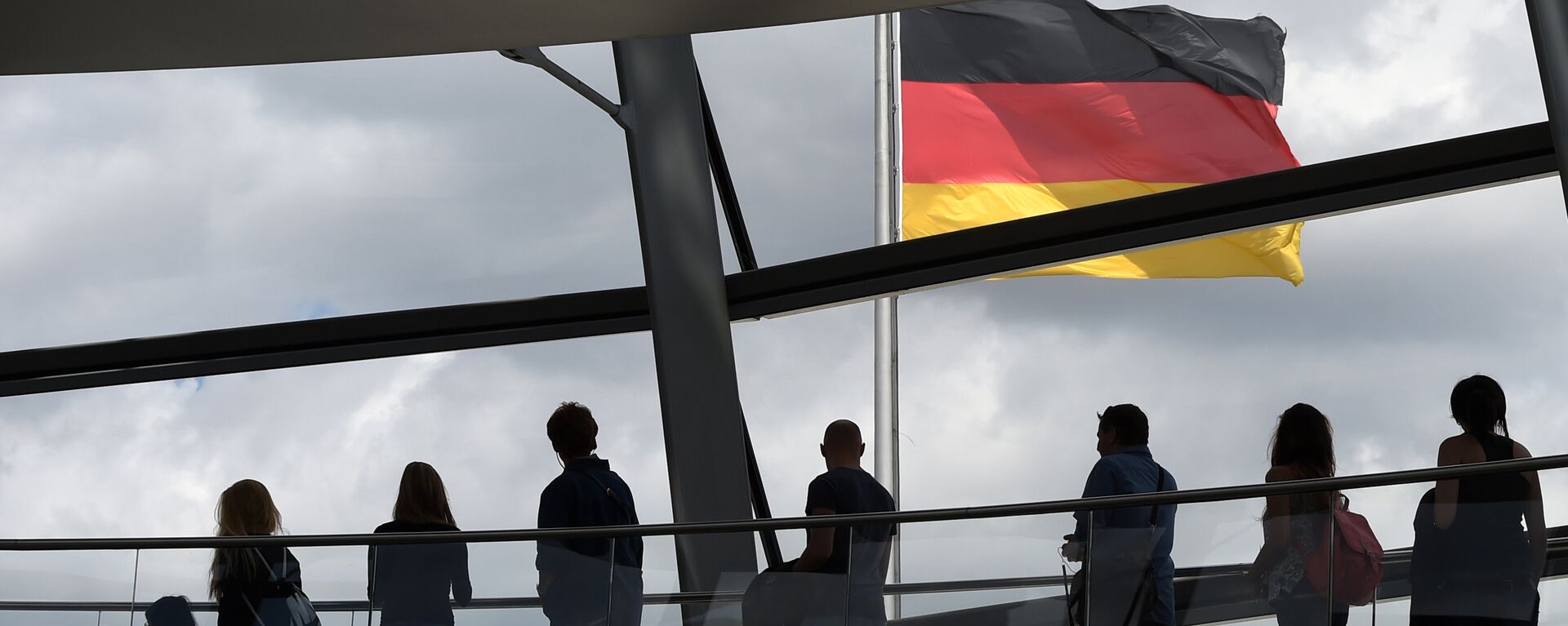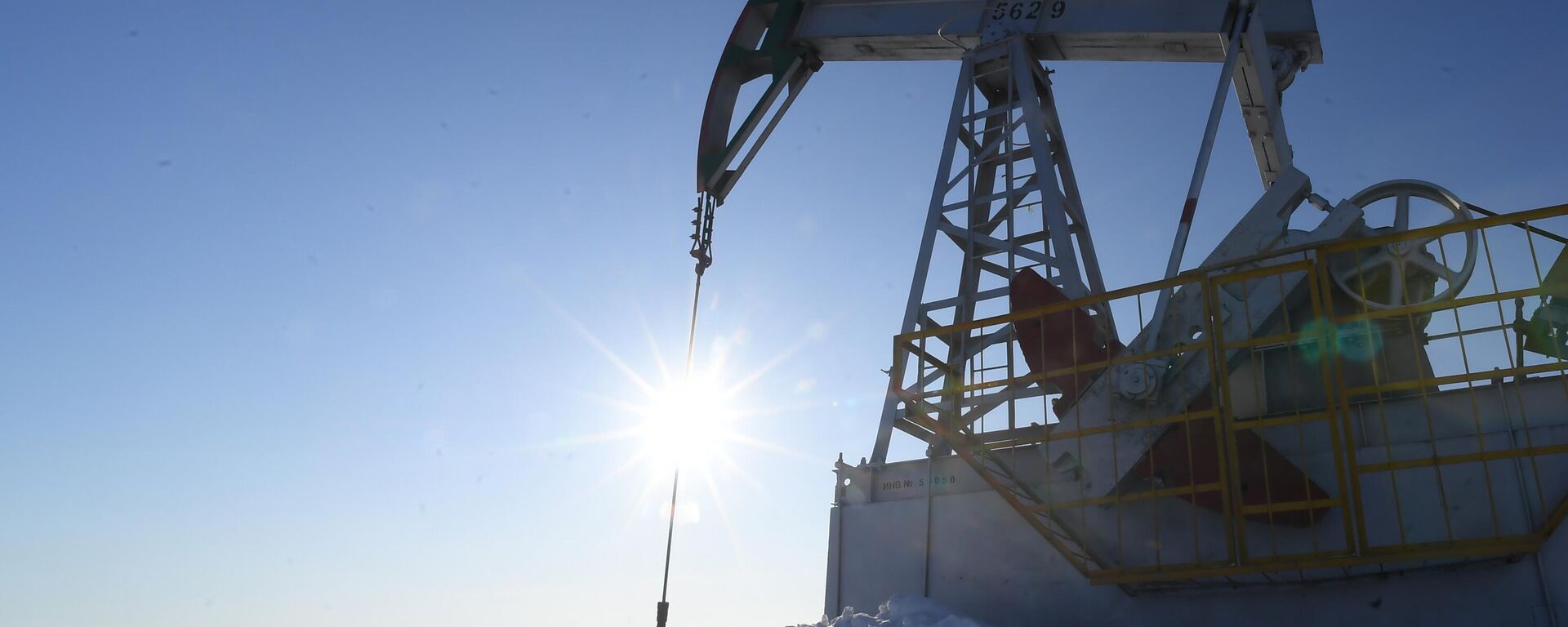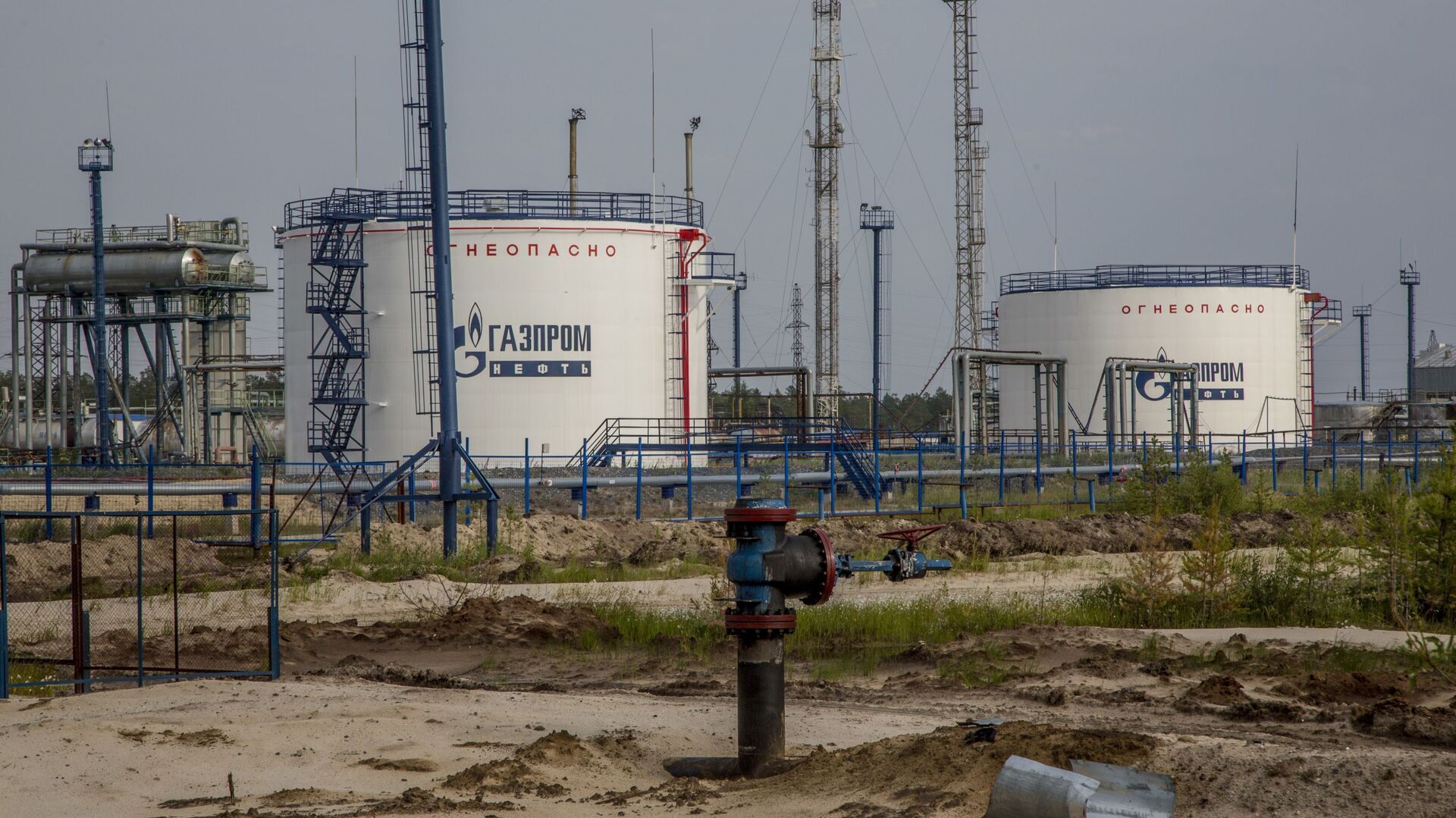https://sputnikglobe.com/20221205/oil-prices-surge-as-price-cap--embargo-on-russian-crude-enter-force-1105039725.html
Oil Prices Surge as Price Cap, Embargo on Russian Crude Come Into Effect
Oil Prices Surge as Price Cap, Embargo on Russian Crude Come Into Effect
Sputnik International
A price cap on Russian oil at $60 per barrel, enforced by the Group of Seven (G7), the European Union and Australia, comes into force on December 5.
2022-12-05T06:50+0000
2022-12-05T06:50+0000
2022-12-08T16:26+0000
russia
g7
oil
energy crisis
world
embargo
2022 russian oil price cap
https://cdn1.img.sputnikglobe.com/img/07e5/02/11/1082102602_0:161:3071:1888_1920x0_80_0_0_2e570b100801820982a8880d2099dfa8.jpg
A price cap on Russian oil at $60 (£49) per barrel, enforced by the Group of Seven (G7) industrialized economies (US, Canada, the UK, France, Germany, Italy, Japan), as well as the EU, and Australia, came into effect this Monday, 5 December. It is accompanied by an EU embargo on seaborne Russian oil that was incorporated into the seventh package of sanctions against Moscow on 21 July, which also included a gradual phasing-out of crude from the world's second-largest oil exporter.Price Cap & EmbargoConceived with the objective of punishing Russia for its special military operation in Ukraine and curbing its ability to earn oil revenues, the restrictions adopted in summer provided for a complete import ban on all Russian seaborne crude oil as of 5 December 2022, and petroleum products as of 5 February 2023.The price cap initiative dates back to June 2022, when the G7 came up with its grand design to install such a mechanism to allow third-party countries to carry on importing seaborne Russian crude oil using G7 and EU tankers, insurance companies and credit institutions only under the condition that the commodity is sold for less than $60 a barrel. Ostensibly, this could throw a spanner into the works even for countries which are not part of the controversial deal. The EU and the G7 are to review the level of the cap every two months, with the first such review slated for mid-January.The price cap – a move adopted in blatant disregard of market conditions - has sown discord within the EU and resulted in months of bickering. In their eagerness to hurt Moscow, Poland, Lithuania and Estonia argued the case for an even lower price cap of $30 per barrel. Greece, Malta and Cyprus had haggled for a higher price cap or compensation to safeguard their shipping industries.Furthermore, Russia’s Deputy Prime Minister Alexander Novak specified earlier that if the cap came into effect, Russia would either redirect its crude supply to "market-oriented partners" or slash production. But despite this warning and fully aware of the potential havoc on the energy markets in the event of Russia's curbing oil extraction, the West pushed ahead with its plan.As the EU seaborne crude ban does not apply to Russia's crude entering Europe via pipelines, Hungary, the Czech Republic and Slovakia are set to continue receiving it through the Druzhba pipeline. Bulgaria was also granted a special temporary exemption from the seaborne oil ban until the end of 2024.Regarding oil products, there is not enough clarity so far. Croatia will be able to import vacuum gas oil from the Russian Federation, and the Czech Republic will be able to produce gasoline and diesel from Russian raw materials. As Europeans can also import non-Russian oil headed their way via Russia, Azerbaijani, Turkmen and Kazakh crude shipped from Ust-Luga and Novorossiysk terminals are unaffected. The same seems likely to apply to Latvian so-called “blends” from Ventspils.Oil prices surged on Monday as the plan to cap the price of Russian oil kicked in. Brent crude rose approximately 1 percent to more than $86 In Asia trading.Dangerous & Illegitimate InstrumentRussia has slammed what it considers to be an attempt to manipulate “the basic principles of free markets”. It will "only sell oil and oil products to those countries which will work with us according to market conditions, even if we have to somewhat cut production," Novak, a native of Ukraine, said on 4 December.Russia won't export oil and gas to those countries that choose to cap energy prices, as Russian President Vladimir Putin announced in mid-October, but it is monitoring the situation, Kremlin spokesman Dmitry Peskov said on Sunday."We base our actions on President Putin's statement that we will not trade in oil and oil products or gas with such countries [that introduce price caps]. So, this is our position for now," Peskov told media.Russia's embassy in the United States called the price cap a "dangerous" initiative, saying:No one from the Organization of the Petroleum Exporting Countries and its allies (OPEC+) has yet commented on the new restrictions against Moscow. However, on Sunday the cartel held a meeting at which it made the decision to maintain existing oil production quotas. The alliance had agreed earlier to cut output by 2 million barrels per day (bpd) from November until the end of 2023, because of the weaker economic outlook.Experts predict a shortage of oil and diesel fuel in the European market as a consequence of the embargo, as well as a surge in fuel prices, which will deal a serious blow to the EU economy."Consequences of such a decision are obvious: it will lead to booming demand, disruptions of supply chains and the explosive growth of fuel prices across the globe," first deputy chairman of the Russian Federation Council's Committee on Economic Policy, Ivan Abramov, warned.At the same time, Russia has significantly increased supplies to China, India, Turkey, Africa and the Middle East, and continues to seek and find alternative markets. From January to October, China bought 9.5 percent more crude from Russia than in the same period last year - 71.97 million tons, bringing Moscow revenue of $49.2Bln, according to estimates of the head of Rosneft Igor Sechin. Beijing has become the largest buyer of the country’s seaborne crude.Although Moscow is second to Saudi Arabia in how much it ships to China, it came top in how much it shipped to India. According to Vortexa analysts, in October, New Delhi for the first time received more oil from Russia by sea than the European Union - outstripping the continent by 34 percent.As for the insurance ban on tankers, Turkey, for one, has recognized insurance on Russian shipping vessels and so, mostly, has India, the Deputy Minister of the Federal Agency for Maritime and River Transport, Alexander Poshivai said. According to sources cited by western media, Rosneft is expanding its own tanker charter business, Lukoil is moving its oil from the Baku-Tbilisi-Ceyhan (Turkey) pipeline to the non-sanctioned Caspian Pipeline Consortium system. Russia has continuously emphasized that it has an extensive consumer market and will sell oil only on terms which are favorable to Moscow.
https://sputnikglobe.com/20221204/germany-expects-partners-to-join-price-cap-on-russian-oil-says-german-foreign-minister-1105036828.html
https://sputnikglobe.com/20221204/russia-will-not-accept-price-cap-imposed-by-brussels-kremlin-says-1105016782.html
russia
Sputnik International
feedback@sputniknews.com
+74956456601
MIA „Rossiya Segodnya“
2022
News
en_EN
Sputnik International
feedback@sputniknews.com
+74956456601
MIA „Rossiya Segodnya“
Sputnik International
feedback@sputniknews.com
+74956456601
MIA „Rossiya Segodnya“
a price cap on russian oil, oil price cap at $60 per barrel, russian oil price cap, eu embargo on seaborne russian oil, russia sanctions,
a price cap on russian oil, oil price cap at $60 per barrel, russian oil price cap, eu embargo on seaborne russian oil, russia sanctions,
Oil Prices Surge as Price Cap, Embargo on Russian Crude Come Into Effect
06:50 GMT 05.12.2022 (Updated: 16:26 GMT 08.12.2022) As part of the sanctions imposed against Russia over its special operation in Ukraine, the European Union reached an agreement on Friday to cap the price of Russian seaborne crude at $60 per barrel. On the same day, the G7 nations and Australia also agreed to set a $60 price ceiling on oil from Russia.
A
price cap on Russian oil at $60 (£49) per barrel, enforced by the Group of Seven (G7) industrialized economies (US, Canada, the UK, France, Germany, Italy, Japan), as well as the EU, and Australia, came into effect this Monday, 5 December.
It is accompanied by an EU embargo on seaborne Russian oil that was incorporated into the seventh package of sanctions against Moscow on 21 July, which also included a gradual phasing-out of crude from the world's second-largest oil exporter.
Conceived with the objective of punishing Russia for its special
military operation in Ukraine and curbing its ability to earn oil revenues, the restrictions adopted in summer provided for a complete import ban on all Russian seaborne crude oil as of 5 December 2022, and petroleum products as of 5 February 2023.
The
price cap initiative dates back to June 2022, when the G7 came up with its grand design to install such a mechanism to allow third-party countries to carry on importing seaborne Russian crude oil using G7 and EU tankers, insurance companies and credit institutions only under the condition that the commodity is sold for less than $60 a barrel. Ostensibly, this could throw a spanner into the works even for countries which are not part of the controversial deal. The EU and the G7 are to review the level of the cap every two months, with the first such review slated for mid-January.
The price cap – a move adopted in blatant
disregard of market conditions - has sown discord within the EU and resulted in months of bickering. In their eagerness to hurt Moscow, Poland, Lithuania and Estonia argued the case for an even lower price cap of $30 per barrel. Greece, Malta and Cyprus had haggled for a higher price cap or compensation to safeguard their shipping industries.
Furthermore, Russia’s Deputy Prime Minister Alexander Novak specified earlier that if the cap came into effect, Russia would either redirect its crude supply to "market-oriented partners" or slash production. But despite this warning and fully aware of the potential havoc on the energy markets in the event of Russia's curbing oil extraction, the West pushed ahead with its plan.
As the EU seaborne crude ban does not apply to Russia's crude entering Europe via pipelines, Hungary, the Czech Republic and Slovakia are set to continue receiving it through the
Druzhba pipeline. Bulgaria was also granted a special temporary exemption from the seaborne oil ban until the end of 2024.
Regarding oil products, there is not enough clarity so far. Croatia will be able to import vacuum gas oil from the Russian Federation, and the Czech Republic will be able to produce gasoline and diesel from Russian raw materials. As Europeans can also import non-Russian oil headed their way via Russia, Azerbaijani, Turkmen and Kazakh crude shipped from Ust-Luga and Novorossiysk terminals are unaffected. The same seems likely to apply to Latvian so-called “blends” from Ventspils.
Oil prices surged on Monday as the plan to cap the price of Russian oil kicked in. Brent crude rose approximately 1 percent to more than $86 In Asia trading.

4 December 2022, 20:36 GMT
Dangerous & Illegitimate Instrument
Russia
has slammed what it considers to be an attempt to manipulate “the basic principles of free markets”. It will "only sell oil and oil products to those countries which will work with us according to market conditions, even if we have to somewhat cut production," Novak, a native of Ukraine, said on 4 December.
"We are not going to use instruments linked with the price cap. We are now looking at mechanisms to ban the use of the price cap instrument," the deputy prime minister added.
Russia won't export oil and gas to those countries that choose to cap energy prices, as Russian President Vladimir Putin announced in mid-October, but it is monitoring the situation, Kremlin spokesman Dmitry Peskov said on Sunday.
"We base our actions on President Putin's statement that we will not trade in oil and oil products or gas with such countries [that introduce price caps]. So, this is our position for now," Peskov told media.
Russia's embassy in the United States called the price cap a "dangerous" initiative, saying:
"Steps such as these will inevitably result in increasing uncertainty and imposing higher costs for consumers of raw materials... Regardless of the current flirtation with the dangerous and illegitimate instrument, we are confident that Russian oil will continue to be in demand."
No one from the Organization of the Petroleum Exporting Countries and its allies (OPEC+) has yet commented on the new restrictions against Moscow. However, on Sunday the cartel held a meeting at which it made the decision to maintain existing oil production quotas. The alliance had agreed earlier to cut output by 2 million barrels per day (bpd) from November until the end of 2023, because of the weaker economic outlook.

4 December 2022, 03:57 GMT
Experts predict a shortage of oil and diesel fuel in the European market as a consequence of the embargo, as well as a surge in fuel prices, which will deal a serious blow to the
EU economy.
"Consequences of such a decision are obvious: it will lead to booming demand, disruptions of supply chains and the explosive growth of fuel prices across the globe," first deputy chairman of the Russian Federation Council's Committee on Economic Policy, Ivan Abramov, warned.
At the same time, Russia has significantly increased
supplies to China, India, Turkey, Africa and the Middle East, and continues to seek and find alternative markets. From January to October, China bought 9.5 percent more crude from Russia than in the same period last year - 71.97 million tons, bringing Moscow revenue of $49.2Bln, according to estimates of the head of
Rosneft Igor Sechin. Beijing has become the largest buyer of the country’s seaborne crude.
Although Moscow is second to Saudi Arabia in how much it ships to China, it came top in how much it shipped
to India. According to Vortexa analysts, in October, New Delhi for the first time received more oil from Russia by sea than the European Union - outstripping the continent by 34 percent.
As for the insurance ban on tankers, Turkey, for one, has recognized insurance on Russian shipping vessels and so, mostly, has India, the Deputy Minister of the Federal Agency for Maritime and River Transport, Alexander Poshivai said. According to sources cited by western media, Rosneft is expanding its own tanker charter business, Lukoil is moving its oil from the Baku-Tbilisi-Ceyhan (Turkey) pipeline to the non-sanctioned Caspian Pipeline Consortium system. Russia has continuously emphasized that it has an extensive consumer market and will sell oil only
on terms which are favorable to Moscow.




